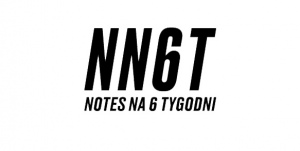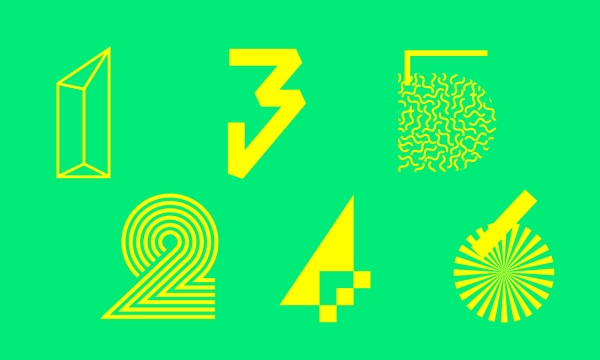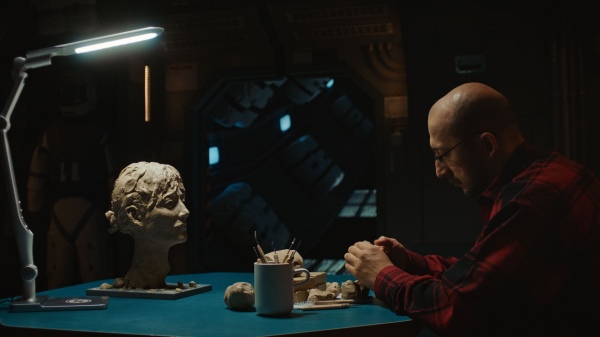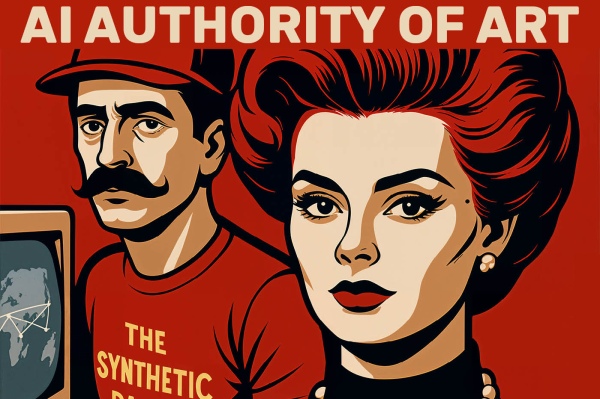10/12/2015—10/01/2016
exhibition
Małgorzata Goliszewska
So Long, and Thanks for All the Fish
- The title of Małgorzata Goliszewska’s exhibition is a quote from a science fiction novel by Douglas Adams, The Hitchhiker’s Guide to the Galaxy. This sentence is the last message left for humans by the dolphins. And dolphins are precisely the topic chosen by the Artist for her project. The show by Goliszewska presents speculations and texts about dolphins, shows us their images and allows us to listen to their voices, together with the spiritual messages that those voices express. Nonetheless, Goliszewska's exhibition is not exactly about dolphins, but rather about the constructs of human imagination personified by these marine mammals.
- When we ask ourselves about the possibility of dolphins (or any other creatures other than humans, for that matter) having personal identity, we are actually asking about the nature of human identity itself. Is personal identity exclusive to humans, does it exclude humans from the world of nature and, at the same time, exclude the entire nature from the world of persons?
- The history of modern civilization can be interpreted as a story about creating this double, mutual exclusion. People have always wanted to own self-awareness as an exclusive privilege, but at the same time they could not stand the desolation caused by such exclusivity. Hence the need to confront human identity with non-human persons, including phantasmal entities such as angels, aliens, demons, deities or artificial intelligence. The case of dolphins is paradigmatic in this context, and at the same time very special, because – unlike aliens – they can not only be seen, but also touched, although we got used to treating them as part of objectified nature.
- And yet, as Adams writes: "It is an important and popular fact that things are not always what they seem. For instance, on the planet Earth, man had always assumed that he was more intelligent than dolphins because he had achieved so much – the wheel, New York, wars and so on - whilst all the dolphins had ever done was muck about in the water having a good time. But conversely, the dolphins had always believed that they were far more intelligent than man – for precisely the same reasons. Curiously enough, the dolphins had long known of the impending destruction of the planet Earth and had made many attempts to alert mankind to the danger; but most of their communications were misinterpreted as amusing attempts to punch footballs or whistle for tidbits, so they eventually gave up and left the Earth by their own means shortly before the Vogons arrived. The last ever dolphin message was misinterpreted as a surprisingly sophisticated attempt to do a double-backwards-somersault through a hoop whilst whistling the Star Spangled Banner, but in fact the message was this: So long, and thanks for all the fish."
- In order to understand dolphins' message – and treat them as self-aware beings in the first place - people have to leave behind their anthropocentric views on reality. Such an option opens promising perspectives, but is painstakingly difficult – in order to do it, we must transcend ourselves and, so to say, look at ourselves from outside. Such breakneck feats can be attempted on the basis of the rational foundations of posthuman theory, according to which “humans are fiction”. However, Małgorzata Goliszewska works with imagination and personal experience. Just like the Dogon, who claimed that dolphins came from the system of Sirius B, the Artist perceives them in the same way as we could perceive intelligent extraterrestrials. She searches for direct contact with dolphins in the Egyptian sea, but at the same time she tracks the perspectives of pre-modern cultures, animists, contemporary adepts of esoteric traditions, Sci-Fi authors and human activists defending the rights of non-human persons. All those discourses, quite different from one another, have one thing in common: an alternative point of view that differs from the anthropocentric paradigm of modern, post-Enlightenment civilisation. Goliszewska's art creates such an alternative discourse itself – yet this might be true about art in general. It is easy to question the credibility of alternative discourses (because the cosmology of primal cultures is “primitive”, animism is “regressive”, esoteric means irrational, new age strikes us as naive, Sci-Fi is made up of speculations, and art has no direct influence on reality). And yet, those languages, in spite of their helplessness in view of hard, rational argumentation, are the only way to express certain concepts of reality that otherwise would remain inexpressible or even unthinkable within the scientistic episteme.
- (Stach Szabłowski)
-
My first impulse was to devote a major part of the show’s budget to help dolphins and induce some real change. However, after long research and after consulting experts, I understood that dolphins wouldn’t find money helpful in any way. Therefore, I travelled to Egypt – a place that provided the highest chances of meeting dolphins in their natural environment – planning to shoot a movie. There were several short and very emotional meetings, but I did not manage to document any of them. The film that was created as a result shows my intense longing for the next, even closer contact.
-
(Małgorzata Goliszewska)
-
Today at U–jazdowski







